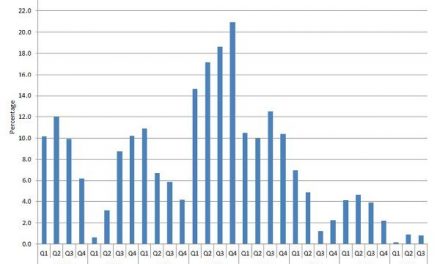
Regional budget synchronisation is more important than the document itself
In the past two weeks, three SADC countries, Botswana, South Africa and Namibia presented their national budgets to their respective parliaments.
The annual budgets typically lead to a flurry of analysis, comparison and commentary. Then it usually dies down, and after about two weeks, very little of value is said about this rather important event.
It is then followed by a period in all three parliaments where every Tom, Dick and Harry gets a chance to offer his or her views of the budget to a parliament that falls asleep while the august member addresses the august house. This is usually where I start enjoying the process for it presents me with an opportunity to hear the views of a large number of individuals, each with his own opinion, not having the foggiest idea what they are talking about.
One has to realise that the level of debate in any of the parliaments, be it in Botswana, SA or here, is not of a very high standard. In fact it is not even of a moderate standard, it is downright awful, based on a presumptuous attitude of entitlement, and it really does not contribute much to the budgetary process, nor to the implementation of policy and strategies that follow the announcement of the actual budget.
We are no exception. For the next two months, a completely meaningless exchange will be carried on in parliament. Every member who supports Swapo will thank the finance minister, the President, the Prime Minister, the village council, the chairman of the taxi association, and whoever else they can think of to make it appear, these people had a hand in the conceptualisation and finalisation of the national budget.
In turn, all the members who do not support Swapo will, intermittently, carry on with long tirades on all the perceived shortcomings in the latest budget, always coming back after a long session of drivel, to remind the finance minister not to forget his or her constituency back home, and to make sure that at least a small allocation in next year’s budget, will help to ensure goodwill all round.
I find it always most enjoyable, to wait for the final plea, and this always comes as a sophisticated form of begging, sometimes even bordering on a suggestion, and often a form of bargaining. Pounds for power, in a sense.
And after a while, even the parliamentarians develop budget fatigue, taking the debate to its last dying stages, before returning to more pressing issues like the drought, foot and mouth disease, communal land demarcation, cattle export permits, gender violence, and salary increases. Meanwhile, the financial management of both the government and the country must continue, and I am fairly sure the finance ministry officials do not waste sleep over the budget debate, but get on with the process of disbursement and reconciliation of accounts.
The annual budget statement is only a flicker on the larger, continuous radar screen which is the Namibian economy, and which must be planned, managed, steered and controlled over a horizon that spans a much longer time frame than a single financial year.
Twenty four years ago, the budget debate still mattered but it must be remembered that we were an infant nation with infant institutions, and that our budgetary structures were all largely determined by conventions in South Africa. Today it is an entirely different case.
The budget process during the planning stage has developed a depth that is comparable to any of the more advanced so-called emerging economies. To get an understanding and appreciation for the input required to draw up the annual budget, one only has to compare the array of documents that it releases, to the archives of around two decades ago. Following in the wake of the new budget comes the reconciliation process which, in seven or eight months from now, gives us the only reliable assessment of last year’s budget, in the form of the National Accounts. But by the time they are finalised and released, the country’s financial management has been overtaken by events of the new financial year. In this sense, the National Accounts, in their final published format, are only of academic value with few people realising that the finance ministry is already working hard on the draft of the next budget. I think it is important that the non-technical user of the budget information realises, it is only a snapshot at a chosen point in time. It is preceded by a complicated and involved process, same as it is followed by one. But there are no real divisions. It is one long continuous process, which is perhaps the most important reason why it is so difficult to extract a meaningful analysis from the mountain of data offered.










































